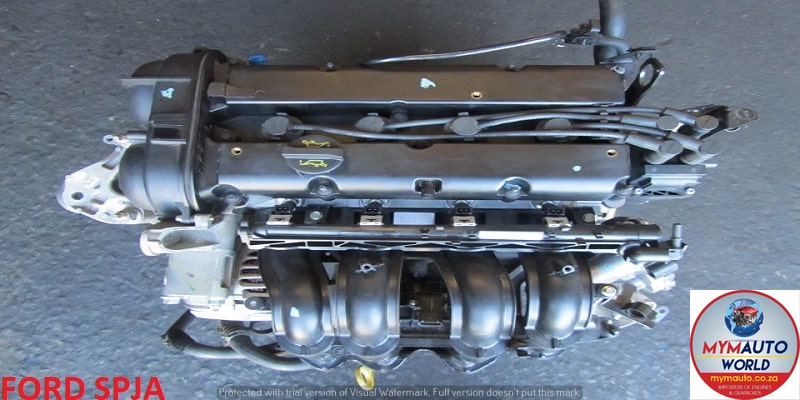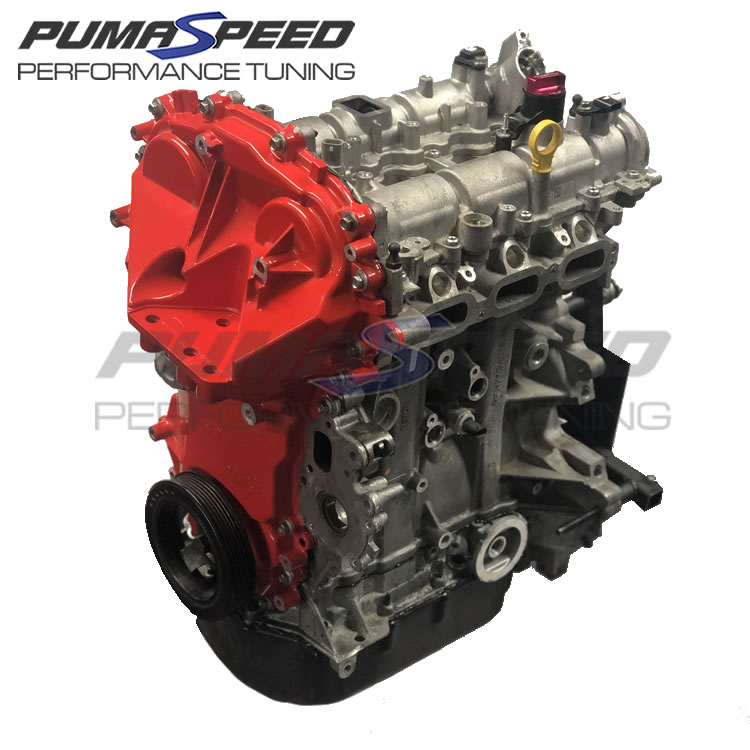Discover the Latest Ford Fiesta Engine Upgrades for Enhanced Power
Discover the Latest Ford Fiesta Engine Upgrades for Enhanced Power
Blog Article
The Future of Engines: Developments Driving Sustainable Power Solutions
As the vehicle industry navigates the important transition towards sustainability, the future of engines is progressively specified by groundbreaking technologies. Electric engine innovations, along with encouraging developments in hydrogen fuel cells and biofuels, are reshaping the landscape of power remedies. The introduction of hybrid systems further complicates this development, offering both possibilities and challenges to reduce emissions successfully. Coupled with the assimilation of expert system in engine design, these technical strides elevate important questions about their lasting stability and effect on standard paradigms. What might this mean for the sector and consumers alike?
Electric Engine Advancement
The advancement of electric engine advancements signifies a crucial change in the auto and aerospace industries, driven by the immediate need for sustainable options to nonrenewable fuel sources. This transition is identified by considerable developments in battery innovation, power electronic devices, and electric motor layout, which collectively enhance the effectiveness and efficiency of electric engines.
Current technologies have actually led to the production of lighter, much more energy-dense batteries, such as lithium-silicon and solid-state batteries, which guarantee longer arrays and shorter billing times. Additionally, improvements in electric motor performance, such as the use of irreversible magnets and progressed cooling systems, make it possible for electric engines to run efficiently under differing conditions. These improvements not just improve automobile performance but likewise add to a decrease in overall power usage.
In addition, the assimilation of advanced software program formulas has actually optimized power monitoring in electric automobiles, allowing for regenerative stopping and predictive billing strategies. As suppliers increasingly welcome electrical propulsion, the aerospace and automotive markets are experiencing a standard shift towards greener innovations. This advancement not just fulfills regulatory demands however likewise straightens with customer preferences for eco-friendly transportation solutions, solidifying electrical engines as a keystone of future sustainable wheelchair.
Improvements in Biofuels
As the automobile and aerospace sectors significantly prioritize lasting power sources, improvements in biofuels become a corresponding option to electric engines. Biofuels, derived from natural products such as plants, waste, and algae, provide an ingenious opportunity for decreasing greenhouse gas emissions and dependence on fossil gas.
Recent study has actually concentrated on enhancing the performance and sustainability of biofuel manufacturing. Second-generation biofuels use non-food feedstocks, minimizing competition with food supply and minimizing ecological effect. Developments in synthetic biology have actually made it possible for the engineering of bacteria to create biofuels a lot more effectively, leading to greater returns and lower manufacturing prices.
Additionally, the growth of drop-in biofuels enables smooth integration into existing infrastructure, enabling a smoother shift for industries typically depending on fossil fuels. ford fiesta engine. These fuels can be made use of in present engines without modifications, promoting their adoption throughout numerous markets
Investments in biofuel technology, in addition to encouraging policies, are necessary to drive technology and scalability. As the worldwide area looks for to battle climate modification, biofuels offer a pragmatic, immediate solution that aligns with the overarching goal of sustainability in transport and aeronautics.
Hydrogen Gas Cell Technology
A growing number of companies and researchers are discovering hydrogen fuel cell technology as a viable alternative to standard source of power in transportation and power systems. This innovation converts chemical power from hydrogen into electrical energy via an electrochemical response, with water as the only byproduct, making it an ecologically friendly option.
The core of hydrogen fuel cells is the fuel cell pile, where hydrogen particles are split right into electrons and protons. The flow of electrons generates electricity, while protons relocate with a membrane to combine with oxygen from the air, developing water. This process results in high effectiveness and reduced emissions, placing hydrogen gas cells as an important gamer in the transition to lasting energy.
Substantial developments have actually been made in boosting the try these out toughness and effectiveness of gas cells, alongside minimizing expenses with innovative manufacturing techniques. The development of hydrogen production methods, such as electrolysis powered by eco-friendly power resources, boosts the sustainability of the overall system. As framework for hydrogen refueling expands and production methods come to be extra efficient, hydrogen gas cell technology holds wonderful assurance for decarbonizing various industries, consisting of durable transport and stationary power generation.
Crossbreed Solutions and Their Impact
Crossbreed systems stand for a substantial advancement in lasting engine modern technology, merging standard inner combustion engines with electrical propulsion to maximize power performance and lower emissions (ford fiesta engine). This double method allows vehicles to use both power resources, making it possible for better adaptability in power usage and reducing reliance on fossil fuels

Along with environmental advantages, hybrid systems provide customers a practical change towards completely electrical vehicles. They minimize array anxiety by combining the convenience of gas with the benefits of electric propulsion, making them an eye-catching alternative for a larger audience. As makers buy hybrid technology, the growth of advanced battery systems and lightweight products proceeds to enhance performance. Overall, hybrid systems stand for a pivotal step towards achieving sustainable transportation and attending to the immediate requirement for environmentally pleasant power solutions.
The Function of AI in Engine Style
Leveraging sophisticated formulas and equipment learning methods, the automobile sector is progressively integrating fabricated knowledge (AI) into you could try this out engine style procedures. AI enhances the performance and efficiency of style by evaluating vast datasets to recognize optimal configurations and performance criteria. This ability allows engineers to mimic different operating conditions and predict engine actions under multiple scenarios, considerably minimizing the time and cost linked with traditional prototyping methods.
Furthermore, AI assists in the development of innovative products and burning procedures customized for sustainability. By enhancing official website gas performance and reducing exhausts, AI-driven styles align with worldwide efforts aimed at decreasing the carbon footprint of vehicle engines. Equipment knowing algorithms can also anticipate upkeep demands, leading to boosted reliability and longevity of engine elements.
Furthermore, AI contributes in the assimilation of electrification modern technologies, such as hybrid systems, where it can optimize battery monitoring and power recuperation processes. As the sector relocates in the direction of more sustainable power solutions, the function of AI in engine layout comes to be progressively vital, driving advancement and improving the efficiency of future engines. Inevitably, the collaboration in between AI and engine layout advertises a new age of smarter, cleaner, and extra effective automobile innovations.

Verdict
Finally, the future of engines is being formed by a convergence of cutting-edge modern technologies that prioritize sustainability. Electric engine innovations, biofuel growths, hydrogen gas cells, and crossbreed systems jointly contribute to a substantial decrease in discharges and environmental impact. Additionally, the combination of expert system in engine design enhances performance and efficiency. These transformative services emphasize a commitment to creating a cleaner, much more lasting automobile landscape, inevitably profiting both culture and the setting.
Electric engine improvements, along with promising advancements in hydrogen gas cells and biofuels, are reshaping the landscape of power services. Furthermore, enhancements in electrical motor performance, such as the use of long-term magnets and advanced cooling systems, allow electrical engines to run effectively under varying conditions. By maximizing gas performance and decreasing exhausts, AI-driven layouts straighten with worldwide campaigns intended at minimizing the carbon impact of auto engines. As the sector relocates in the direction of even more lasting power options, the function of AI in engine style becomes significantly vital, driving innovation and improving the performance of future engines. Electric engine developments, biofuel advancements, hydrogen gas cells, and hybrid systems jointly add to a substantial reduction in emissions and environmental effect.
Report this page